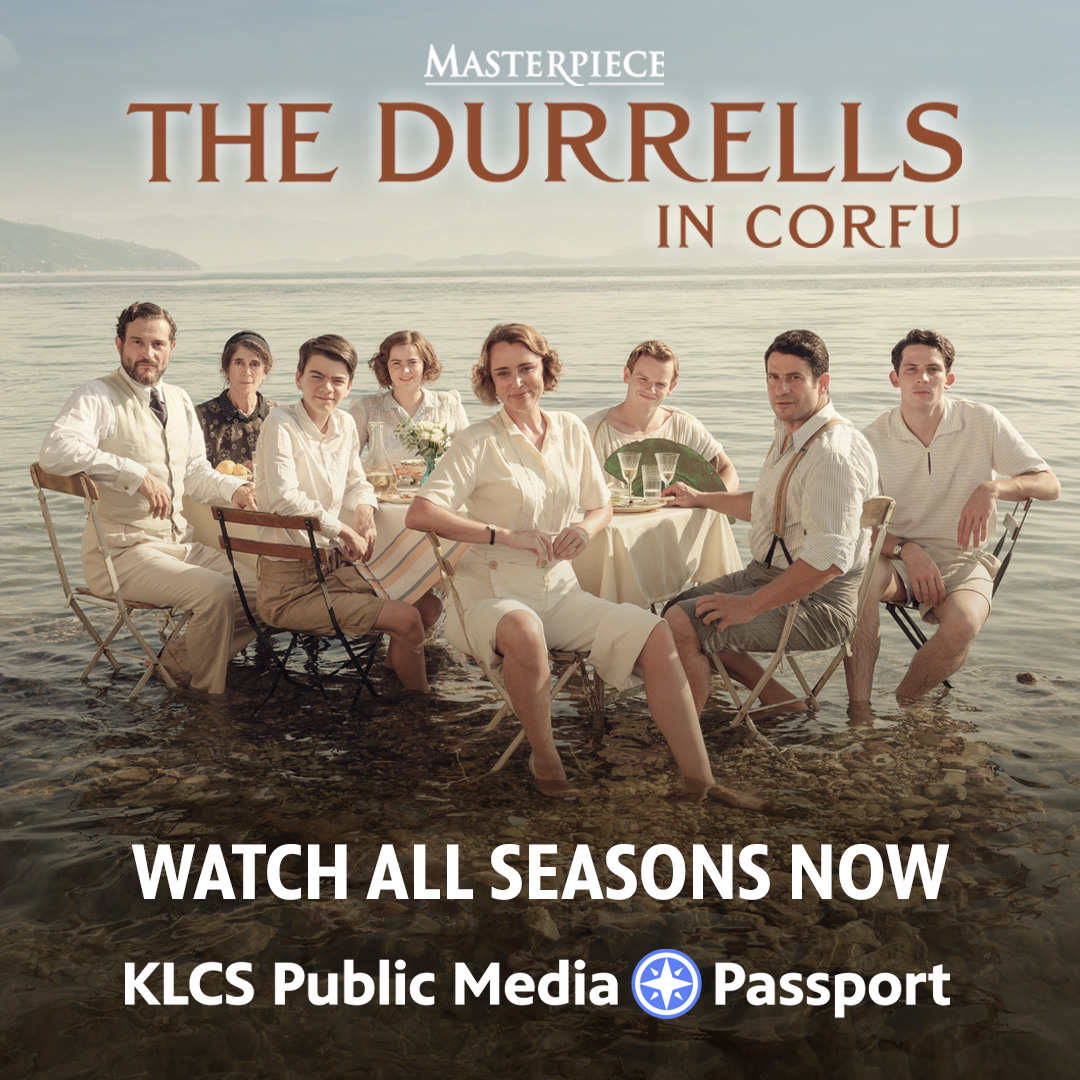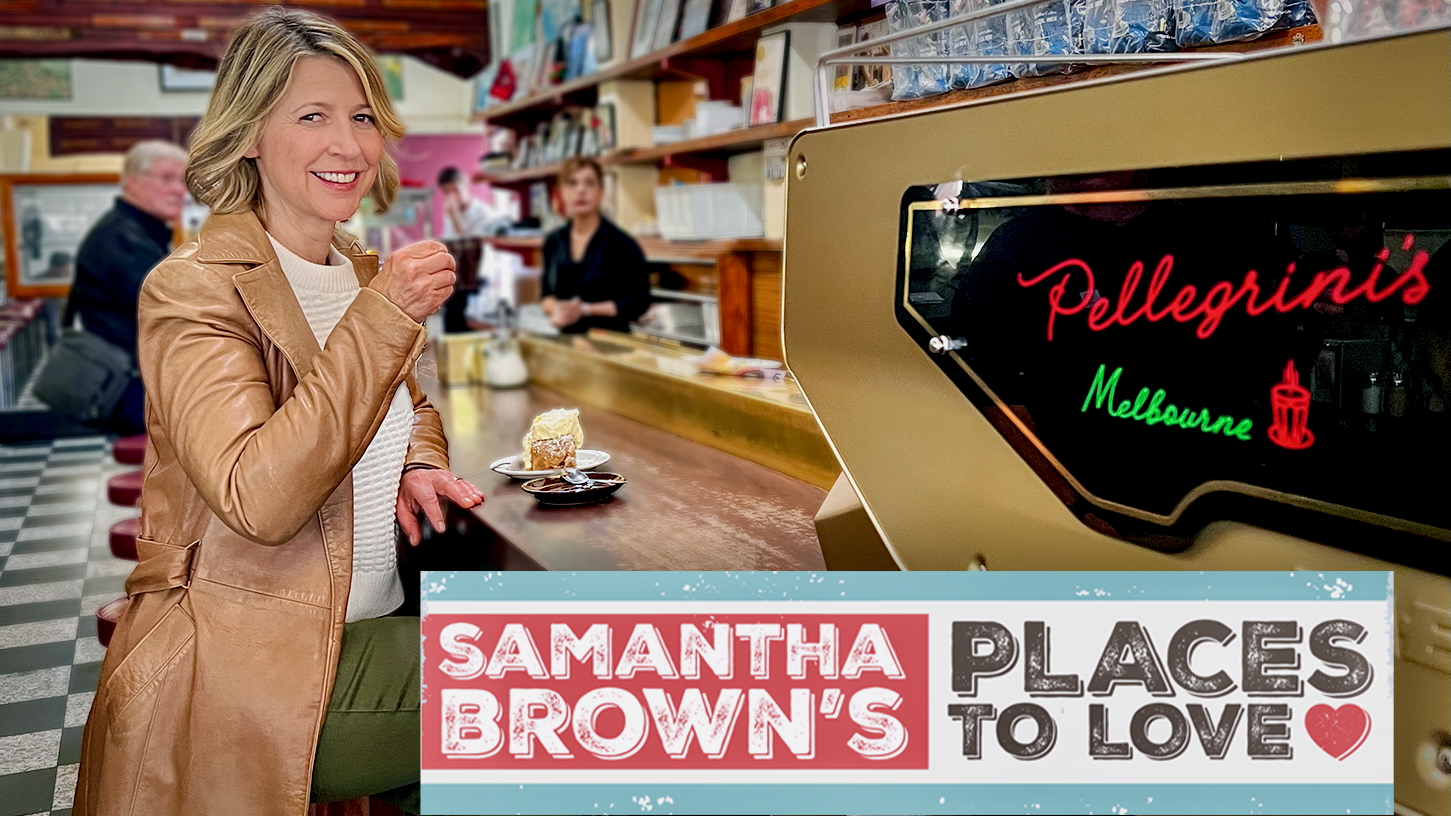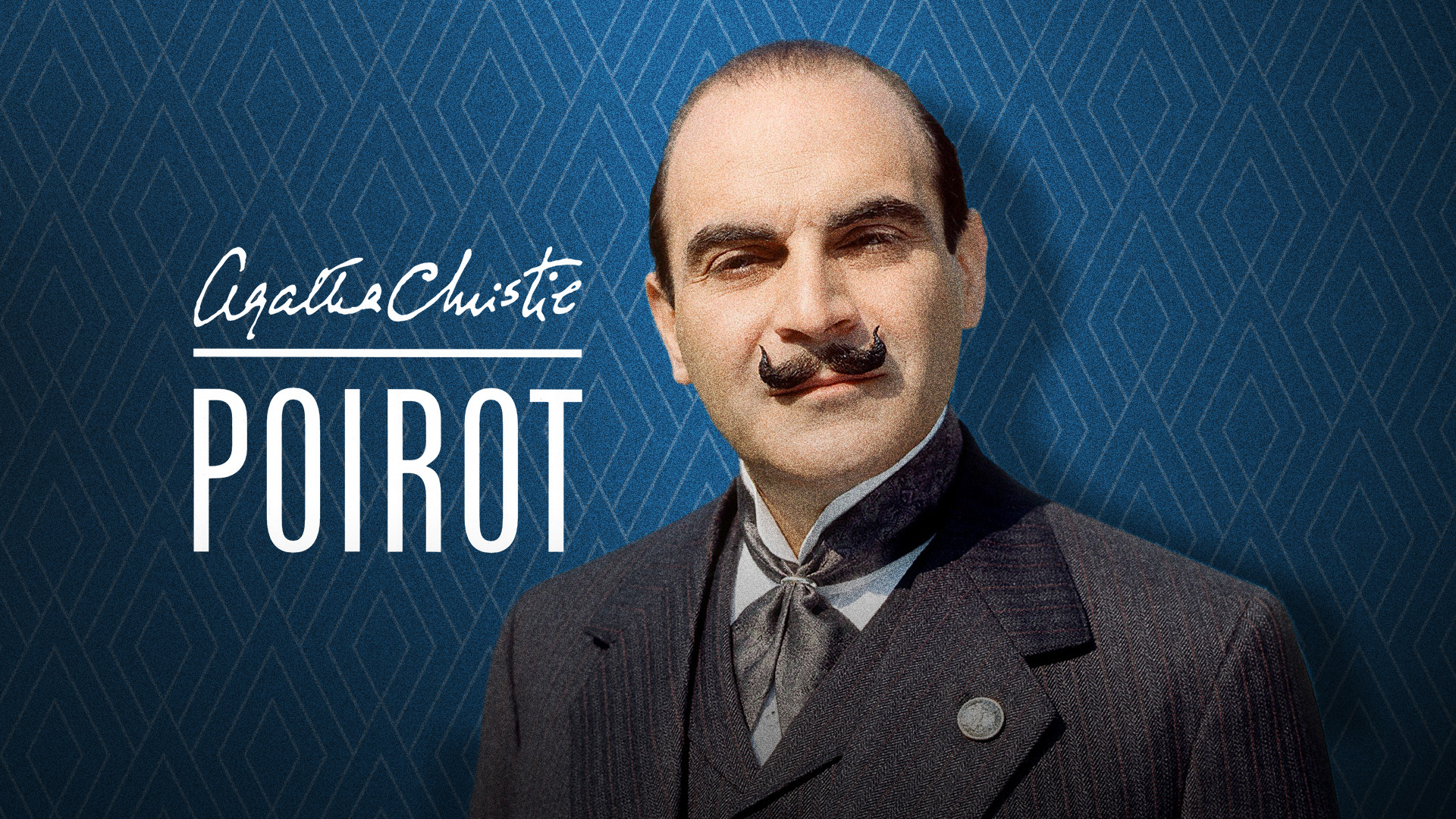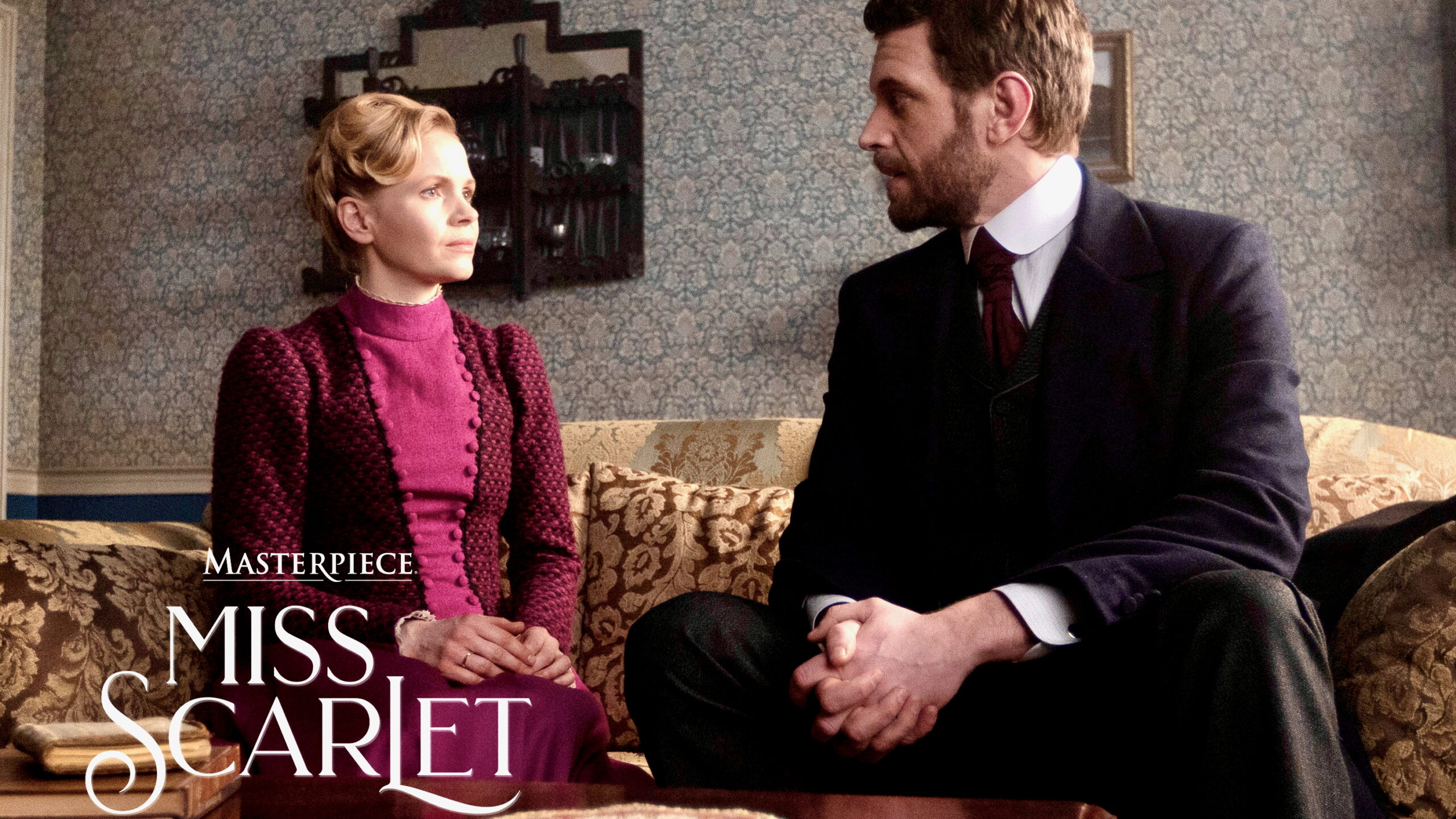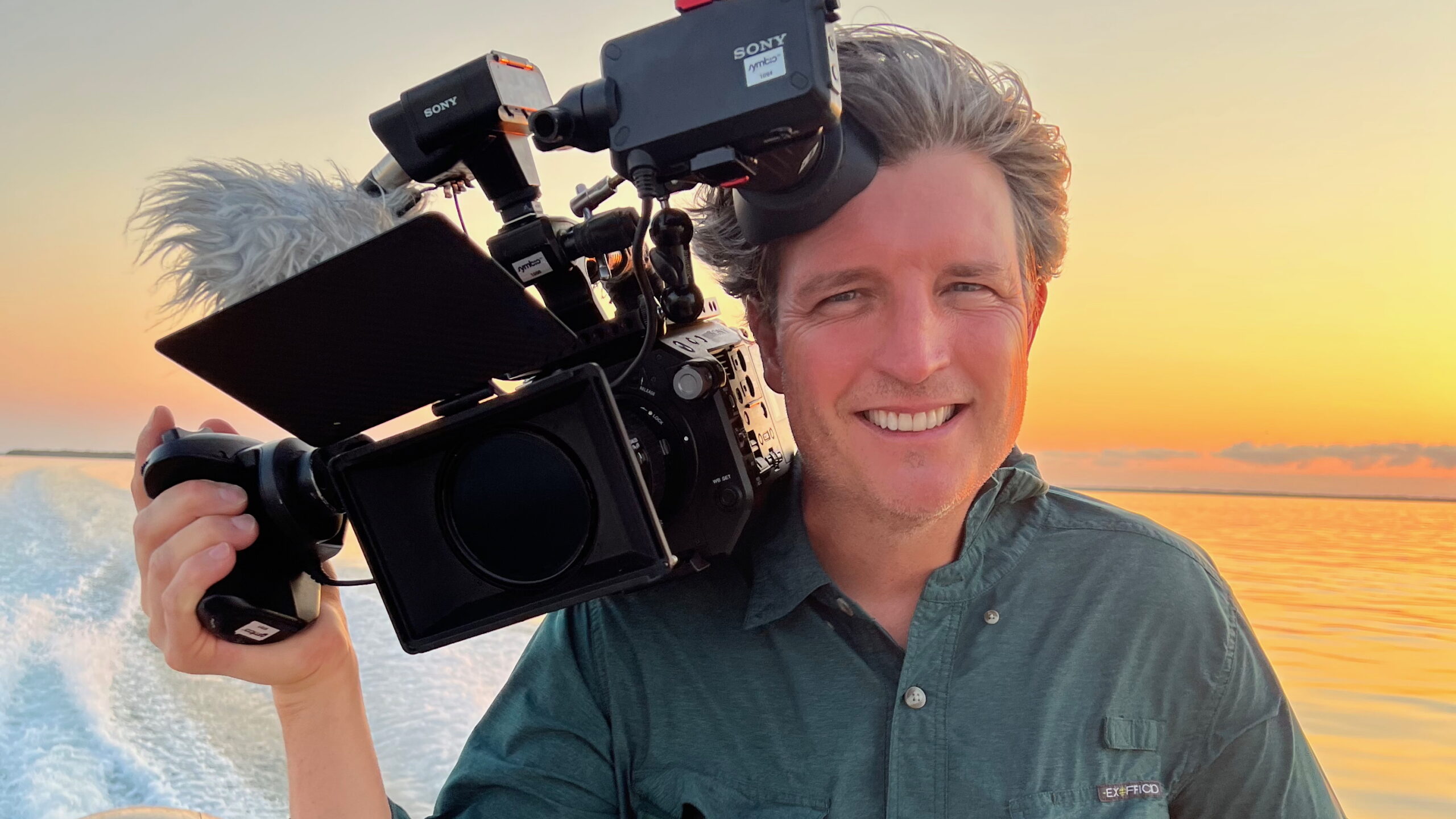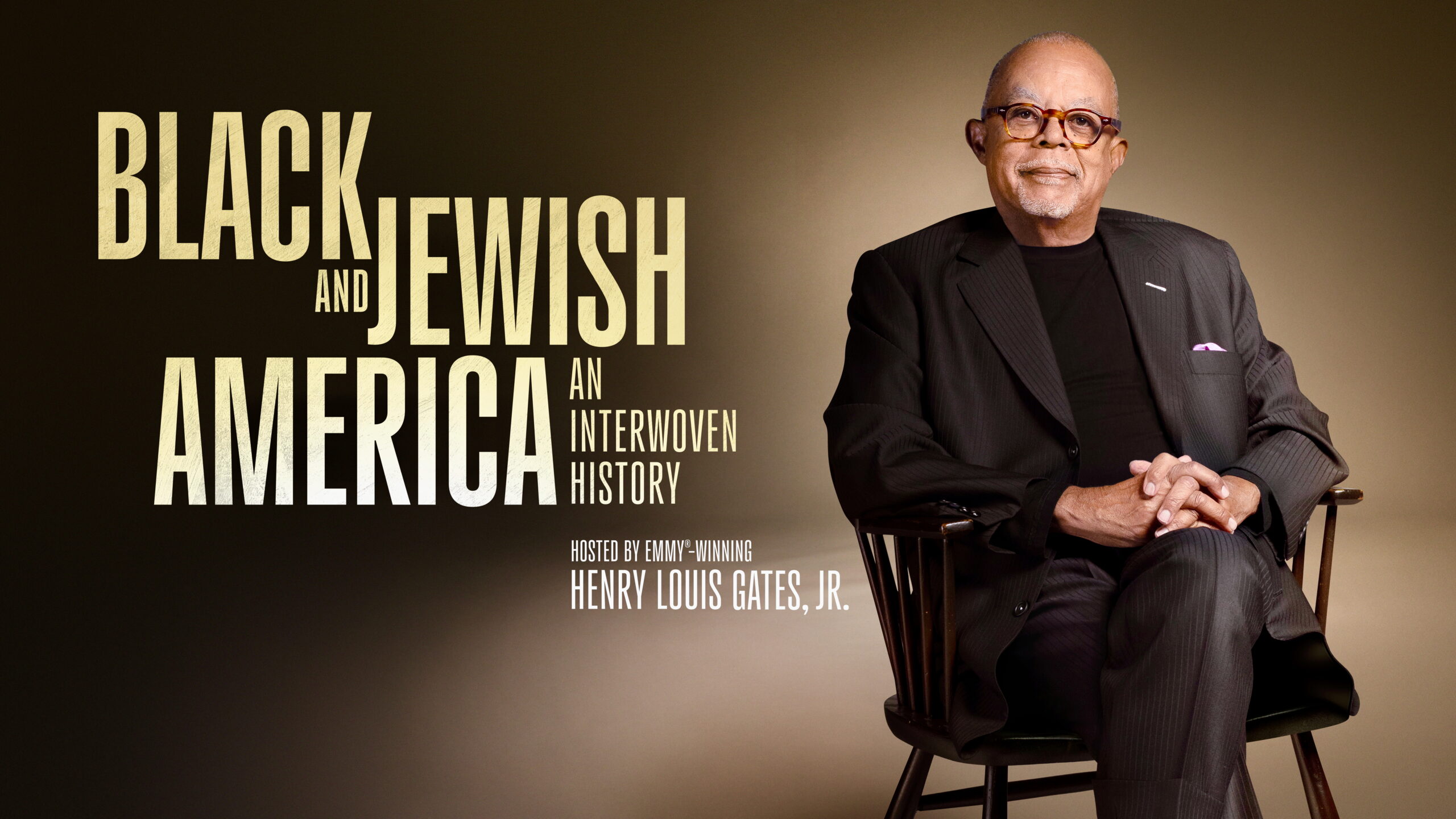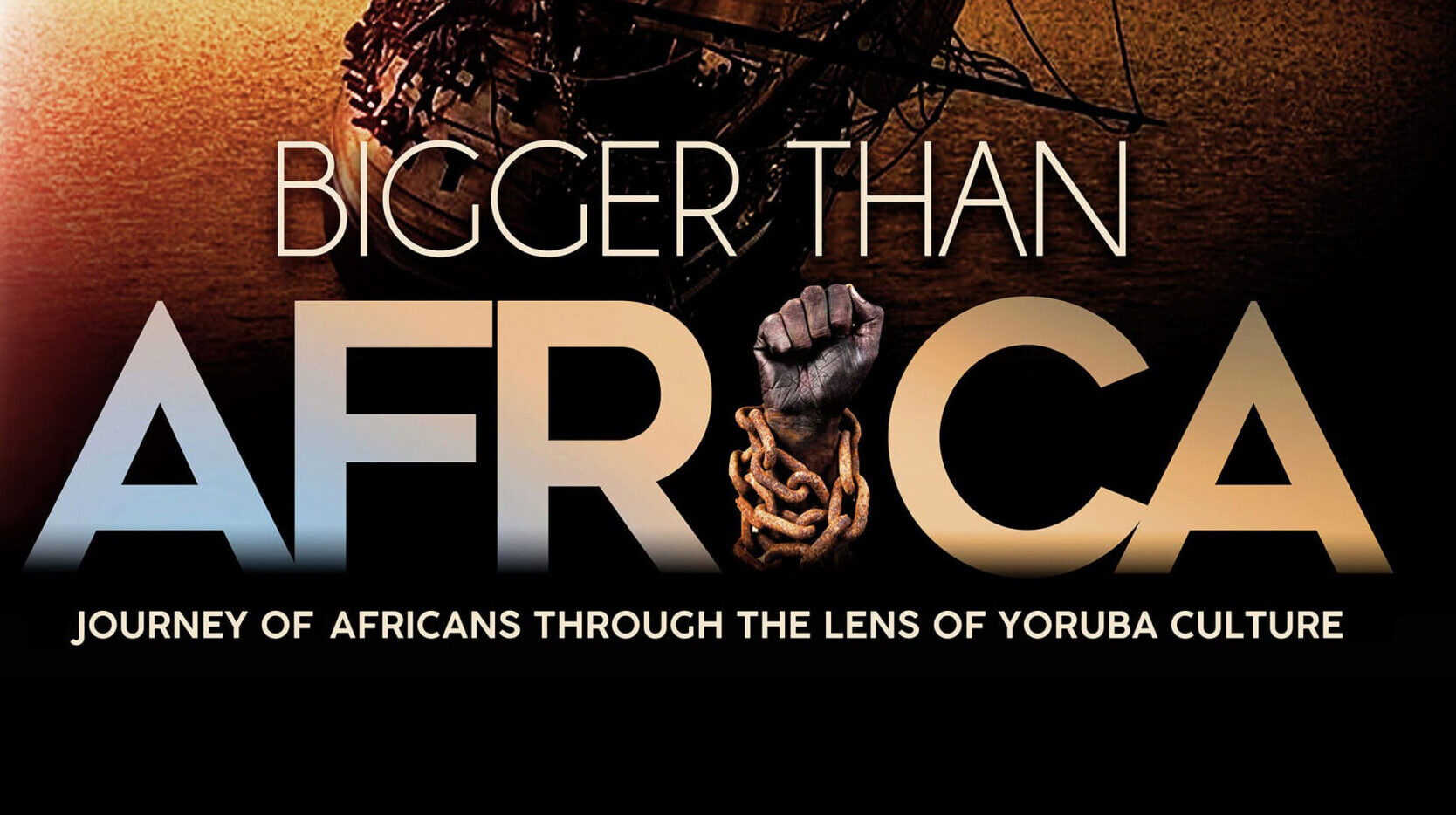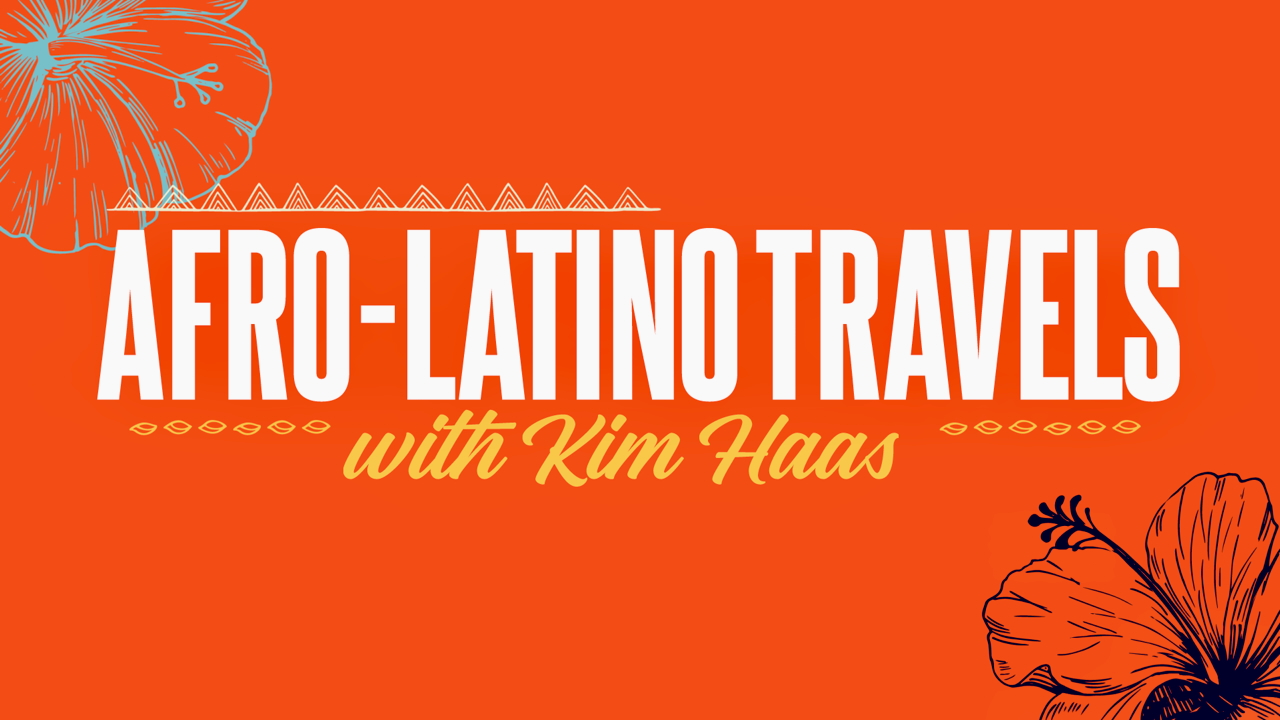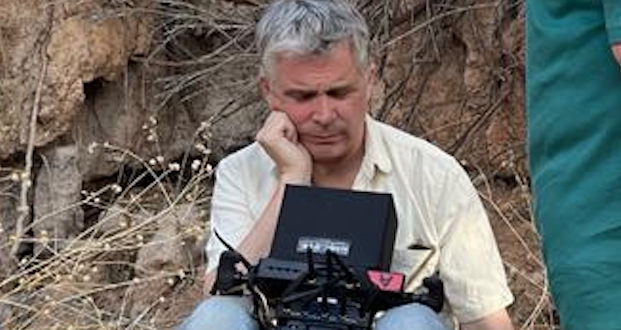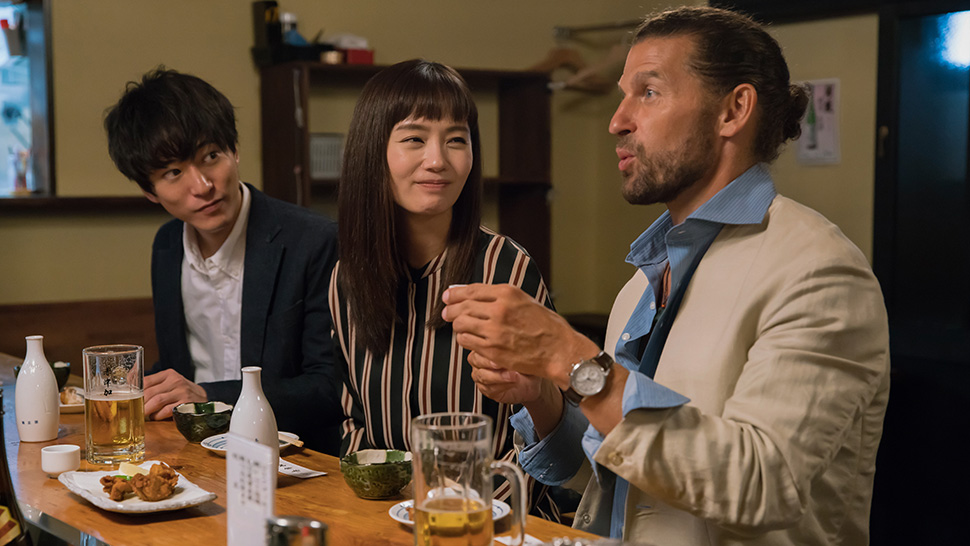If you’re looking for a show that will take you away to the comfort of another time and place , “The Durrells in Corfu” is a delightful family-oriented show about a widow named Louisa Durrell (Keeley Hawes) and her four children – Larry (Josh O’Conner), a young writer, gun-enthusiast Leslie (Callum Woodhouse), free-spirited Margo (Daisy Waterstone) and 11 year-old Gerry (Milo Parker), who move from England to the Greek island of Corfu in the mid-1930’s. Besides Gerry’s Dr. Dolittle-like fascination with wildlife, the family’s relationships and humor are the draw as they settle into this beautiful island and struggle to fit into their new lives. While it’s set in pre-World War II, the focus is on this nuclear family and the new friends they’ve made, with familiar themes that still resonate today: a mother’s love for her children never changes, finding love, and teenagers worrying about their boyfriends or girlfriends as they figure out what they want to be when they grow up. We talk to writer Simon Nye about his approach in bringing these wonderful characters to life from the books they were based on.
All seasons of The Durrells In Corfu are available to stream, on-demand on KLCS|Passport. If you’re not a member, click here to become a member.
Simon, what drew you to this lovely story about the Durrell family?
I’ll give the prosaic professional writer’s answer I’m afraid, a producer asked me. Legendary producer Sally Woodward-Gentle, in fact, who brought “Killing Eve” to our screens. But I responded to the idea immediately because it is a wonderfully sun-kissed world full of brilliant characters who had actually existed and had a great story to tell.
The story is contained in one place, this dilapidated house on the island, which gives viewers a respite and comfort from their busy lives; was that how you saw this world?
Yes, there’s not enough drama on television which celebrates the warmth and poignancy of family life. Although this is a real family who argued, struggled, missed their dead father and so on, so it’s not an unalloyed Disney paradise. For example, Corfu, when they lived there, had no electricity so it may have been a paradise but not a convenient one.
After watching it for a bit, I realized it was based on the younger son’s, Gerald Durrell, books and not his brother Larry who is very much the writer in the series. Had you read his books and been a fan? In light of that, How did you approach this show?
I hadn’t read Gerald’s books, which is odd because “My Family And Other Animals” in particular was, and is, hugely popular in Britain. He is a populist and entertainer and can be hilarious whereas I’m afraid I find Laurence Durrell’s books overwrought and too desperate to impress.
Did you refer to each character’s real life personalities and then crafted your own storylines for them, or did you adhere closely to his books? So when we watch it, is it more fiction with the structure of each character and their real life personalities or did some of the plotlines really happen?
I extrapolated most stories from their personalities, but a lot of events did happen. For example, Margo being shouted at by the monk for sunbathing, and Leslie’s antics with guns. But most stories in Gerry’s autobiographical trilogy are vignettes rather than proper plots so I had to expand on them enormously. But Gerry left out a lot too, so in the later series particularly I drew on the Durrells’ real lives, like Larry going to Paris, Margo having some time in England, Leslie joining the police force and the war encroaching on their lives.
In the show, Louisa relied on the eldest son Larry, as an almost surrogate husband emotionally, but it’s also the case with people who do have a closer bond to the eldest child when they have a lot of kids, perhaps, but was that close bond true for them in life?
I hope I captured an aspect of their relationship, a bond, but I gather Larry was more dismissive of his mother in real life, because he was an intellectual bully and she was practical and never aspired to massive erudition let alone shared Larry’s interest in the avant-garde. I feel she was closer to Leslie because he needed her more, and Gerry had his animals. Though it was Gerry who was decimated by her death years later.
In the show, Corfu is a beautiful island and so is their dilapidated house. Is their old house still there and was it hard to find places to film as this looks like a place where time stood still and we really are in the 1930s?
They stayed in at least three houses on the island, all of which have been over-restored or knocked down. So yes we were lucky to find the amazing house we did, and apparently the Durrells visited there. The mansion where Margo works in season one, incidentally, was where Queen Elizabeth’s husband, Prince Philip, was born.
When they moved to Corfu, they quickly found this lovely circle of friends who immediately took them into their lives. While the character of Spiros was real, did Gerry say much about him in his books?
Yes, Spiro is an ever-present feature of Gerry’s memoirs and really acted as their local expert, friend and savior in a crisis. And he spoke English, learned in Chicago, which was actually quite rare on Corfu, especially among working Greeks as opposed to the educated elite.
Theo was such an important person in little Gerry’s life in the show, in his books does he credit Theo as being a teacher or role model who influenced his passion for wildlife at such a young age?
Gerry was already a wildlife enthusiast but Theo brought some shape and intellectual rigor to Gerry’s love of animals, especially in inspiring him to be a conservationist. The books are full of examples of Theo’s knowledge backing up Gerry’s innocent pleasure in being among animals and insects. It’s lovely that the relationship lasted throughout their lives. Theo wrote poetry and was a complete polymath who was also a huge lifelong friend and mentor to Larry.
Did Gerry really have a little zoo at his Corfu house with visitors who would come see it?
I don’t think he had anything as formal as a zoo but locals certainly dropped in to see his animals. Even though he was only 10 when they arrived, from all accounts Gerry was allowed to roam over the island himself in search of creatures, learned to speak Greek like a local and knew everyone.
Were other characters, like UK expat Florence Petrides, real life friends to Louisa on the island? There was a brief moment when Louisa shares the news that Sven proposed, and upstairs Larry’s girlfriend was laughing and both women looked up and chuckled, held hands and said goodbye. There was this sisterly bond and I wonder if Louisa and her family did find kindred spirits like Florence when they moved there?
I made up Florence because Gerry’s books don’t pay much attention to his mother’s friends, and Louisa is very much our focus. Unlike Gerry and Leslie, who found their friends among working class Corfiot locals, it seems Louisa Durrell relied more on the tennis-playing cosmopolitan middle class for her social circle. Though she always had Lugaretzia. They were there for five years so Louisa must have formed bonds which Gerry (or Lawrence in his writings) doesn’t go into. Larry himself had endless artistic and other visitors from the rest of Europe, including Henry Miller who was living in Paris then.
Much of Season 1 is about the handsome Swede, Sven, who is a closeted gay man; was that a fictional character or was he in their lives on the island?
There is a Sven in Gerry’s memoir who is gay and older (and rather predatory) but I made up the relationship with Louisa. I received some flack in the British press during the first season for allegedly straight-washing Sven, because I held back on revealing he was gay. They just needed to watch the whole of the series.
In Season 1, Louisa’s aunt Hermione comes to take them away with the lure of her wealth. Were the Durrells really that poor on the island and did they have a rich aunt but preferred to have this Greek adventure?
The Durrells had a little more money in real life than I wanted to show in our series. There always seemed to be trust-fund money and investments lying around from Louisa’s late husband, but they did tend to live beyond their means and relied on gifts from stray aunts. The Durrells lived in India for most of their lives before the 1930s, where a little money goes a long way, and that was true of Greece too.
It’s bittersweet that in real life Louisa doesn’t end up with Spiros. Does Gerald say much about him at all that may hint to an unrequited love?
Spoiler! I thought I’d made-up their romance but a documentary was made to accompany the last episode in Season 4 and Spiro’s grandchildren were interviewed and said there was talk of a real-life frisson between them back then. They were certainly a similar age (a bit older than in our series), and the real Louisa was fun-loving like Spiro. And also loved a drink, incidentally, like all the real Durrells.
There are so many moments of levity and one-liners between the siblings, was the humor easy and natural to write, given such inherently different and interesting personalities in each family member? And was it easy to get your inspiration to give each character their voices?
I am one of four children and have four of my own so have had a lot of experience of that dynamic. Although as I say Larry could be cruel, he also encouraged Gerry in his writing and there was much love between the family members but which often was expressed in rather barbed terms. The British are uneasy with American-style sentimentality, and have only recently learned to hug. But yes, I loved writing the dialogue because the characters are so different and clear-cut and sparky.
While there are light moments, there are deeper moments of truth, but always punctuated with a humorous reply, such as when Countess Mavrodaki (Leslie Caron) tells Margo about losing her husband, which as Margo tells others is why the Countess’ world has gotten smaller since then. “One builds a life around a person, perhaps one shouldn’t. And then they are gone and you’re left clutching air.” Does Gerald deal with these deeper issues about mortality in his books, since the question of loss would naturally come up at some point, given the Durrells lost their dad?
Gerald Durrell the writer is determinedly upbeat and squeamish about seriousness. He just doesn’t feel it’s what readers want. He became increasingly serious about wildlife conservation in later life, but generally left musings on death (and sex) to Lawrence, who couldn’t get enough of them.
Watching this show, we learn that the bonds of love are the same, no matter what time and place. And raising children and teens can be the same, it can be joyful and challenging no matter what time in history it is. Was that an intention when you were writing the series? It doesn’t feel as much like a pre-World War II show, but it was mostly a story about their inner personal lives, not what was going on in the greater world around us.
The Durrells were Bohemian, especially Larry and Margo, so, slightly transcended their own era. Which was handy because it’s helpful to be able to address contemporary issues in a period drama. For example, Larry was sexually liberal and permissive about homosexuality. But yes, most of the challenges for a family then are the same today – allowing your children to be independent but wanting to protect them, wanting them to make their own mistakes and learn from them, but then intervening anyway. The point about an island is that it is more cut off, which made the gradual encroachment of the rest of the world, as war threatens in 1938-39, all the more of a shock. That aspect of the wider world was too rich to ignore.
The show provides a light escape to another time and world, especially with the delightful element of this Dr. Dolittle type character in Gerry, whose face lights up at various creatures, even when Larry said there’s a zoo in the outhouse. Milo Parker, who played Gerry was the perfect fit for this character, were there any fun stories about him and the animals he had to handle during the series?
I am the world’s worst anecdotalist, and wasn’t there for that much of the filming. Too busy writing it, so you’d have to ask the actors! But Milo was fearless in all his interactions with animals. I know the pelicans were tricky. The flamingos not much easier. And Gerry’s dog Roger wasn’t the most reliable cast member. We were all mesmerized by the sloth in Season 3.
Each child had such unique personalities. Who was your favorite character to write lines and storylines for?
I loved writing Leslie for his sweet earnestness under the bluster, and Margo for her eccentricity. Leslie’s love entanglements were a lot of fun to plot. But Larry was probably my favourite because he said what he liked, and lived for pleasure but was a mass of contradictions too. I took a few liberties with his love-life, as he was actually married for most of the time, to Nancy, who features in Season 1.
As a writer, was it enjoyable to create this whole world and was it difficult to let go after the final season?
It’s the most fun I’ve had as a writer, and I’ve been doing it for 30 years. Twenty six episodes isn’t a lot in U.S. terms but it’s not bad for British TV and I wrote every episode so it was my life for four years. Lovely actors, great directors, amazing mainly Greek crew. But we were, reluctantly, ready to stop. Milo’s voice had broken, and I had used all the characters from the book, so it was time to say goodbye.
You lived in Los Angeles briefly for work. What are some of your favorite places here?
It was three winters, in fact, which was perfect, as London winters can be really dreary. Though it always seemed to be an El Niño year when we were there. I was there writing, the last time in 2004 in Santa Monica, so although I’ve been back since, I am way out of date on Los Angeles. We lived in Venice Beach the first two times in the late ‘90s and just loved the whole vibe. The perfect day would have been breakfast at the Rose Café. There was nothing like it in the U.K. A walk along the Boardwalk, loving the architecture-porn modern houses along the way. An attempt to go swimming but it was too cold, then maybe over to our friend’s in Culver City. And I remember going into a coffee shop in there in 1997 and thinking this little indy place is great! I didn’t realize it was a Starbucks until years later when they invaded London. In 2004 I’d drive across from Santa Monica to Dreamworks in Glendale, leaving my wife with our four small children. We just loved the beach, really – Paradise Cove, down to Marina Del Ray.
Bonus: Also available on KLCS|Passport, watch What the Durrells Did Next. The definitive true story behind the real-life Durrells is hosted by The Durrells in Corfu’s Luisa Durrell, Keely Hawes.

